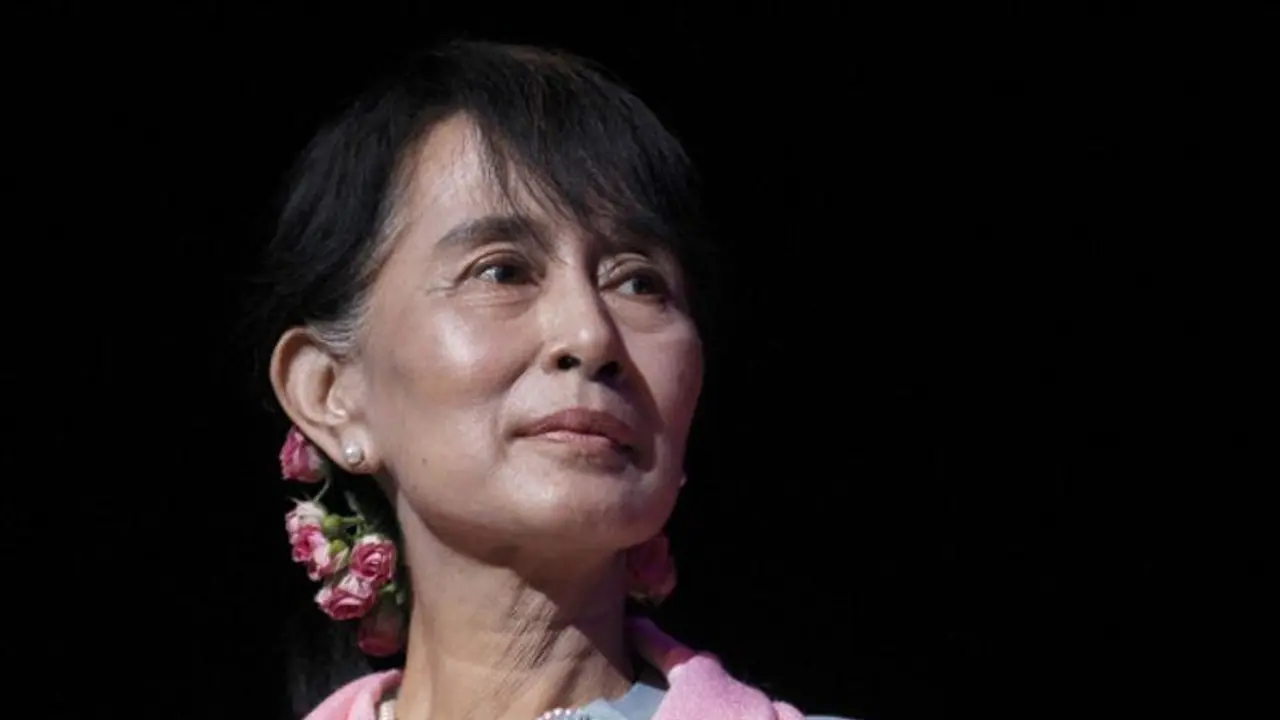A special court announced the first verdicts against Suu Kyi today, December 6, finding her guilty of inciting and violating coronavirus limitations. Let's take a look at her political journey.
Aung San Suu Kyi, the deposed Myanmar leader, is the daughter of the nation's freedom hero, General Aung San. He passed away in 1947, just six months before the country declared independence from Britain. A special court announced the first verdicts against Suu Kyi today, December 6, finding her guilty of inciting and violating coronavirus limitations. She was sentenced to four years in jail, pending more cases.

Suu Kyi, 76, went to New Delhi in 1960 after her mother was appointed ambassador to India. She spent most of her adolescence in the United States and England, where she married Michael Aris, a British Himalayan studies specialist at Oxford University, in 1972. Her political career began in 1988.
She came home in April 1988 to care for her elderly mother as pro-democracy protests erupted against Gen. Ne Win's 26-year military dictatorship. Several large-scale protests were conducted around the country. Hundreds of people were slain when security forces opened fire. In August of the same year, Suu Kyi advocated for democracy in her first public address in front of an estimated 150,000 people in Yangon.
She was placed under house arrest in 1989, and it lasted for 15 of the following 22 years. The National League for Democracy scored a resounding election win in 1990, but the military government annulled the results and refused to relinquish power.
Suu Kyi received the Nobel Peace Prize in 1991 for her nonviolent battle for democracy. On a personal note, Suu Kyi's spouse, Michael Aris, died of cancer in England in 1999. They hadn't seen one other since 1995 when he was denied a Myanmar visa, and she refused to travel overseas for fear of being prevented from returning to Myanmar.
"
Jumping ahead to 2003, Suu Kyi's group was attacked and many of her followers were assassinated during a political trip of northern Myanmar. Protests over petrol prices erupted into the greatest pro-democracy demonstrations since 1988 in 2007. The uprising, dubbed the Saffron Revolution because Buddhist monks headed it, was ruthlessly suppressed. Suu Kyi's party boycotted the polls in 2010, claiming unfair conditions, and the military-backed Union Solidarity and Development Party won the first general election in 20 years. She was later released from home imprisonment in November 2010. Suu Kyi was overjoyed in 2012 when her party secured a seat in Parliament in by-elections after the supposedly civilian administration made concessions on election regulations. She was on cloud nine in 2015 after her party secured a landslide general election win. The military, however, retained enormous influence under a constitution drafted and passed under its guidance in 2008.
Also Read | Myanmar's Aung San Suu Kyi jailed for 4 years for inciting dissent, breaching COVID rules
Parliament was convened in 2016, with Suu Kyi's party controlling a majority. In March, it established a government. Suu Kyi was prevented from becoming president by constitutional provisions, but the state counsellor's role was created for her to oversee the administration.
In 2017, rebels claiming to represent Myanmar's Muslim Rohingya minority attacked security troops in Rakhine, killing scores. The army replied with a ruthless counterinsurgency operation that included mass executions, rape, and arson, driving over 730,000 Rohingya into Bangladesh. According to some, the military's activities amount to ethnic cleansing and maybe genocide.
Suu Kyi defended the military's conduct in preliminary judicial proceedings before the International Court of Justice in 2019, to establish if soldiers committed genocide against the Rohingya. Her party won an even larger majority of parliamentary seats in 2020 than it did in 2015. Suu Kyi and important party and government colleagues were imprisoned by the military in February of this year, just before the start of the current legislative session. The army said it seized power due to rampant electoral fraud in the November election. Suu Kyi was then prosecuted with various alleged offences and remains imprisoned.
